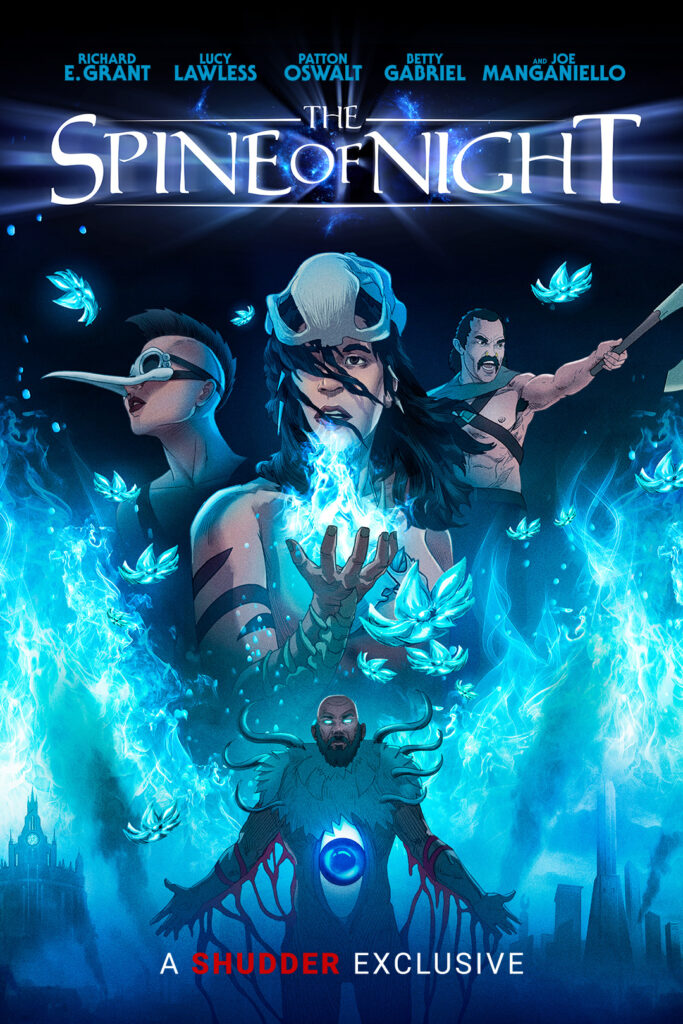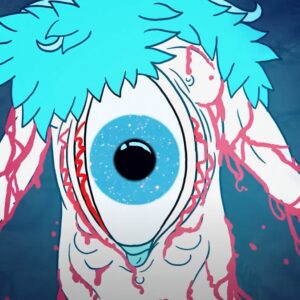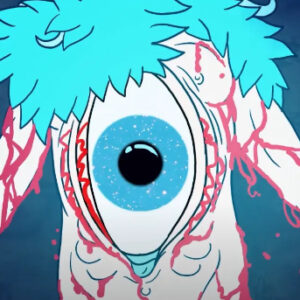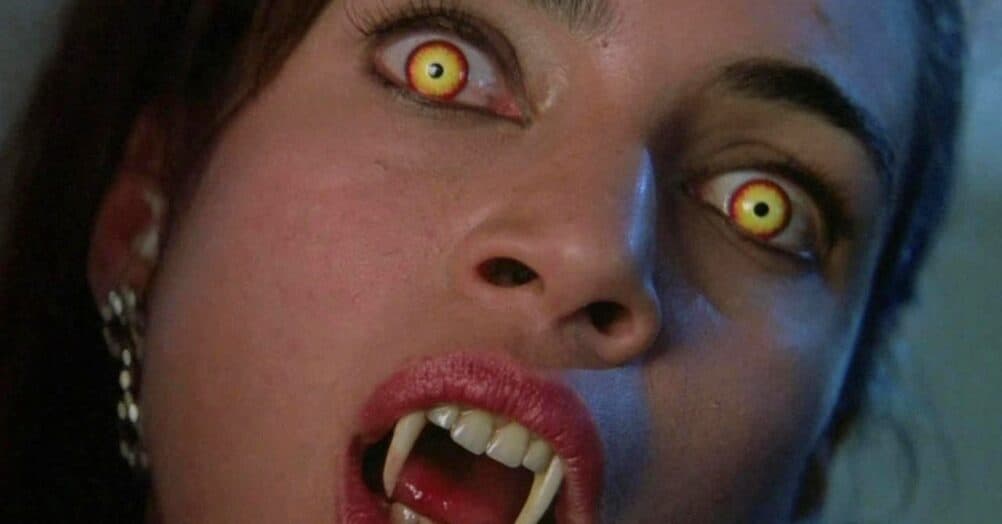Today we’re sharing the trailer for a very interesting looking film, the ultra-violent rotoscope-animated fantasy horror epic The Spine of Night, which will be released through the Shudder streaming service on March 24th. Check it out in the embed above! The Spine of Night will be a Shudder exclusive, meaning the platform will be the only subscription service that will carry the film in the U.S., Canada, the United Kingdom, Ireland, Australia, and New Zealand.
Written and directed by Philip Gelatt and Morgan Galen King, the film shows what happens when
ancient dark magic falls into sinister hands and unleashes ages of suffering onto mankind. A group of heroes from different eras and cultures must band together in order to defeat it at all costs.
The cast includes Richard E. Grant (Loki), Lucy Lawless (Ash vs. Evil Dead), Patton Oswalt (Young Adult), Betty Gabriel (Get Out), and Joe Manganiello (True Blood).
Philip Gelatt provided the following statement:
The world feels increasingly like a nightmare. Or perhaps it’s more the feeling like we’re living in some sick cosmic joke, the punchline of which we should all dread. Given that widely felt emotional truth, it’s no wonder that so many people, myself included, so often feel the need to take leave of it and escape into worlds of fantasy.
I, for one, love the fantasy genre. When I say that out loud, I know exactly the assumptions that so many have about the genre. It’s elves, dragons, magical rings, a general air of nostalgia, a strange worship of royalty and a pervasive sort of silliness. But to me, fantasy has always been more than just its high fantasy trappings. To me, it is the genre most akin to horror. Together, they are genres that are, or should be, the most free. Free to be surreal, strange, experimental, boundary pushing, and, above all else, imaginative.
The Spine of Night was a chance to indulge all those instincts, to make a fantasy film in a different way. Way back when we started this project, I knew the likelihood that I’d ever be able to make my kind of fantasy film within the Hollywood system was basically nil. So Morgan and I set out to make one anyway and do it with the gloves all the way off, so to speak. The result, I hope, speaks for itself in terms of tone, theme, and overall impact.
One last note. I have a memory of reading somewhere, sometime, someone calling the 1982 Conan the Barbarian film: “Star Wars for crazy people.” That quote has stuck with me ever since. It has become emblematic of exactly the kind of work I like to do: take a genre hallmark, that has been made safe and predictable and strip those qualities away to find out what lies beneath.
I think ultimately, that, more than anything else, sums up my intentions with film. I wanted to make a rich, engaging, intellectually questioning genre piece… for people who are a little fucking nuts.
Morgan Galen King added:
On a fundamental level, The Spine of Night is intentionally tied to the niche era of adult animation that reached the American mainstream with Ralph Bakshi’s 1978 The Lord of the Rings, peaked in 1981 with the cult classic Heavy Metal, and then mostly ended after 1983’s Bakshi and Frank Frazetta collaboration Fire and Ice. While I’ve come to learn about the history of brilliant hand-drawn rotoscope animation outside of that specific window, it wasn’t what was available on VHS in the small Virginia town I grew up in (be it Rings meeting the public library’s ‘literary interest’ threshold for adding it to the collection, or the copy of Heavy Metal that someone snagged from his sister’s high school boyfriend for a secretive sleepover viewing). It’s a combination of visual style and genre I have had a lifelong fascination with and have worked for over a decade to evoke in my own work – the aesthetic is potently nostalgic for me.
However, nostalgic forms are often leveraged for their immediate emotional appeal to reinforce the monolith of the status quo, so when I was looking back to the films and styles of the era I most longed to see exist in the world again, I wanted to be conscious that I was approaching that nostalgia in a way that captured the feeling I missed, while also being critical of the kinds of priorities endemic to heroic fantasy as a genre, both in the early 1980s, and in the last decade of Wagnerian blockbusters. From the veneration of rationalized (and often sanitized) violence, to the reinforcement of the unjustified authority of hierarchical systems, to the reliance on Ubermensch to solve a society’s problems, there is a persistent fascistic undercurrent to much of popular mythmaking. This subject seemed worth engaging with when we started THE SPINE OF NIGHT in 2014, and the years since have only made it clearer that this was the right decision.
To cover these themes in a larger world, structurally, I wanted to bridge the difference between the anthology formats of Heavy Metal’s loosely connected approach, and the density of the age-spanning approach of Walter M. Miller, Jr.’s A Canticle for Leibowitz. Ideally, the result is a fantasy world that feels large enough to prompt the imagination of the viewer to fill in the unknowns for themselves, while still eschewing the genre’s impulses to systematize the fantastical or to generate an appendix’s worth of royal genealogies.
Ultimately, I hope that The Spine of Night will introduce a new generation to a niche of animation that hasn’t really seen a resurgence since its prime, while also evoking everything that made it so memorable for those of us who still remember it fondly. If we can also successfully recontextualize the classic traits of the subgenre to speak to the political and philosophical dilemmas of the current age, all the better.
Does The Spine of Night look like something you would enjoy watching? Let us know by leaving a comment below.

































Follow the JOBLO MOVIE NETWORK
Follow us on YOUTUBE
Follow ARROW IN THE HEAD
Follow AITH on YOUTUBE